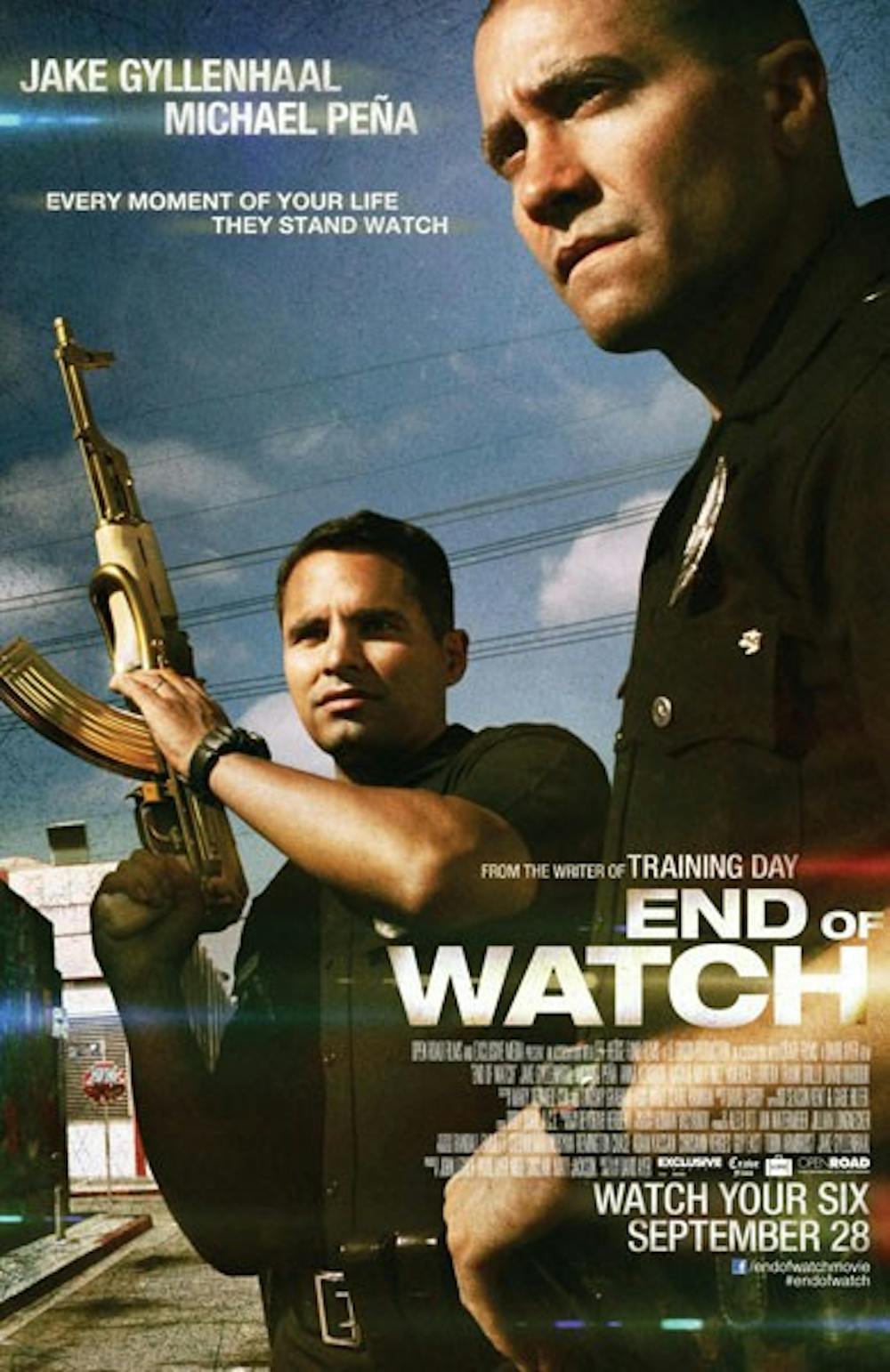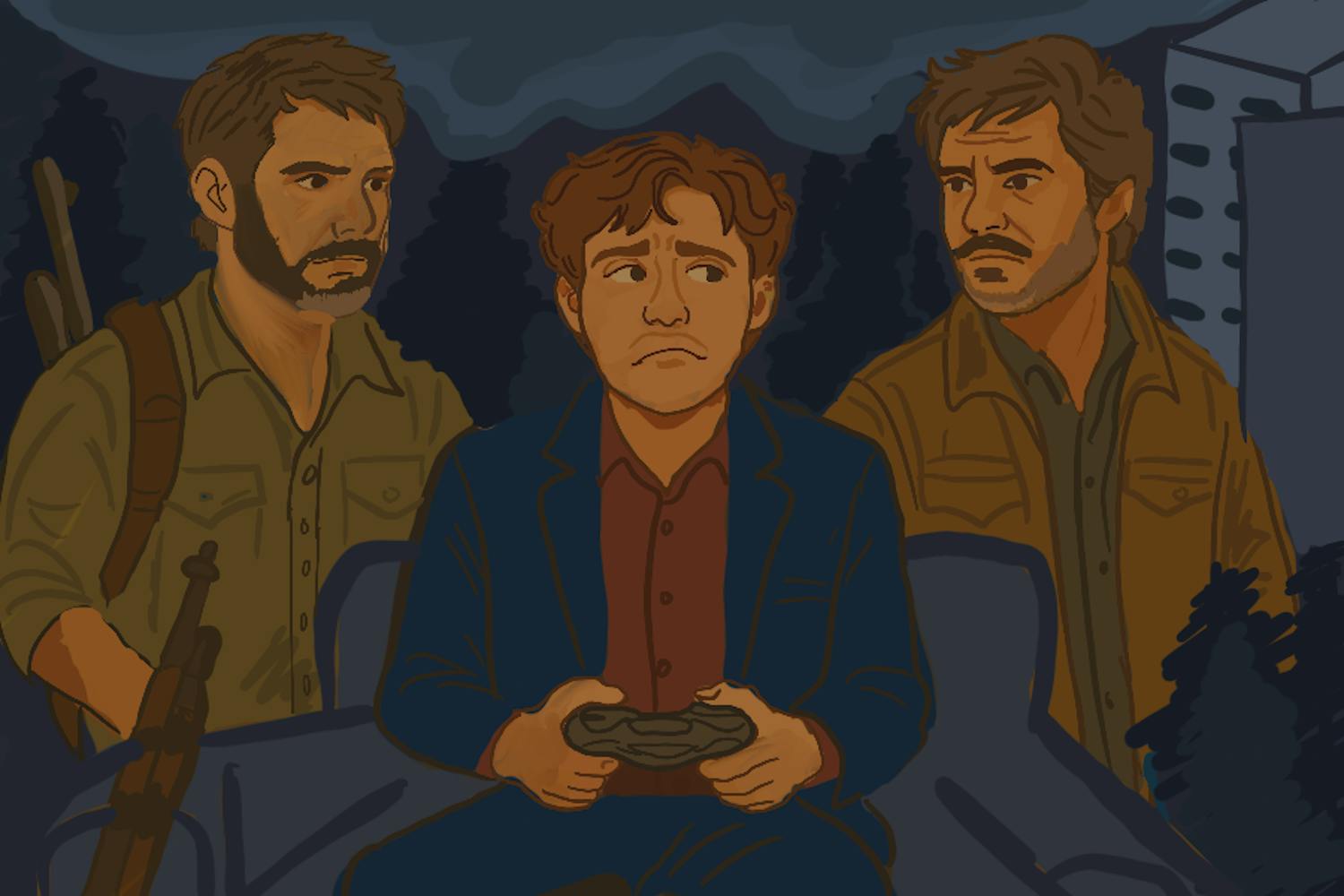4/5 Pitchforks
“End of Watch” is not your average buddy-cop drama. David Ayer, writer of “Training Day,” writes and directs what might be one of the smartest movies of the year. This movie is highly unpredictable, a roller coaster in the dark. Anticipation grows while sitting in the theater trying to guess what will happen next. Most of the time, the movie delivers a satisfying and unforgettable answer.
Jake Gyllenhaal and Michael Peña’s performance is what makes this movie so memorable. Both actors were the driving force that gave the movie its heart and its funny moments. Some of the conversations they shared while driving in the police vehicle are absolutely hilarious.
The trailer for this movie does not allude to how funny the movie really is. There is comedy at the right moments; the humor does not get in the way of the plot or ruin the tone of the film, which is a hard feat to accomplish.
A minor gripe with this film — which may not be fair to point out — is how it was filmed. The problem stems from integrating the shaky camera technique into the plot. Gyllenhaal’s character is going to school part-time to study pre-law. He is taking a filmmaking course as an art elective and shooting his day-to-day life for a project. By doing this, the film should then be limited only to the point of view of his camera and it is not.
Also, “End of Watch” has scenes where there is no way Gyllenhaal’s character could have captured it on a hand-held. The film is filled with shots that have multiple angles, which requires a camera crew. It wouldn’t be a gripe if the cinematographic technique were not part of the story.
If it were just how it was shot, it would have been acceptable. But the movie goes out of its way to explain how the characters were able to record their predicaments and make sure the audience understood why it was shot using shaky-cam. On their terms, the shaky-cam becomes jarring at times. Viewers are left wondering how shots were captured and therefore the audience is ripped out of the experience. However, this is a minor drawback — most people’s suspension of disbelief will be able to easily glaze over that aspect.
Despite the shaky-cam, the film is fantastic. “End of Watch” is a gritty look into what it takes to be a Los Angles police officer.
Hollywood usually portrays cops as corrupt narcissists or fat donut-eating cowards. How this film depicts police officers is both realistic and respectful. The audience sees their lives, how they feel and who they really are. They become human beings. Gyllenhaal became officer Taylor, Peña became officer Zavala, and both became real in the audiences eyes. This is another feat that is hard to accomplish.
With films today being underwhelming piles of computer-generated ego trips, films like “End of Watch” stand out from the rest. The majority of modern movies feel hollow due to their focus on aesthetics and not narrative. This is not one of those films. This is a movie that resonates, seeps into the mind of the viewer, and most of all, respects its audience.
“End of Watch” wants to tell a good story; “End of Watch” wants the audience to know and care for its characters and “End of Watch” succeeds.
Reach the reporter at tverti@asu.edu





